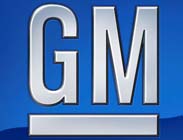Crisis shows up uninvited to GM's 100th birthday party
 Detroit - No one gets to choose their birthday. That goes for people as well as corporations. Next week, a US industrial giant will mark its centennial, but it couldn't be coming at a worse time.
Detroit - No one gets to choose their birthday. That goes for people as well as corporations. Next week, a US industrial giant will mark its centennial, but it couldn't be coming at a worse time.
General Motors, once the largest US corporation and the world's leading automaker, will turn 100 on Tuesday. CEO Rick Wagoner says GM will begin its second century in the midst of fundamental changes in the auto industry.
Some auto industry observers don't rule out the possibility of the company going bankrupt. Others say there are questions about how long Wagoner will continue to steer the company. But crises have been a part of GM's history.
On September 16, 1908, millionaire coach maker William Durant founded General Motors Corp in Flint, Michigan. He already controlled the Buick brand name and Oldsmobile joined GM shortly after, marking the beginning of an unprecedented family of car brands.
Eventually Chevrolet, Cadillac and Pontiac joined the fold, making up GM's core car business. Overseas, it owned part of Germany's Opel and Sweden's Saab, and built a substantial truck-making business.
GM prided itself on being able to offer a broad range of vehicles for every purpose and pocket - but this proved to be a difficult legacy. Experts say GM suffers today because of the confusing variety it offers customers.
"Individual GM brands such as Chevrolet and Cadillac will still exist in 100 years, but whether GM will exist in its current form is the question," said Willi Dietz of a German institute for the auto industry.
GM nearly collapsed in 1910 as a result of rapid growth. Banks stepped in and GM used the fresh funding to become a global industrial giant.
It was soon a corporation of 20 automakers, suppliers and related companies all under one roof. In 1923, GM arrived in Europe, opening its first factory in Denmark. Two years later, it bought British automaker Vauxhall and in 1929 took control of Germany's Opel, buying Saab 60 years later.
Cultural differences led to problems between GM and Opel in the early years. Since the 1960s, American executives have almost exclusively headed Opel, demanding large quantities to keep costs down.
This strategy took its toll on quality, with increasing defects and breakdowns damaging Opel's reputation for dependability. Its marketshare in Germany sank from more than 17 per cent in 1993 to about 9 per cent currently.
After years of losses in Europe, GM launched a brutal restructuring, including slashing 9,000 jobs - measures that made the company profitable again. Today Opel has small cars with diesel capacity and lightweight construction, and GM has said it wants to invest about 13 billion dollars in Opel by 2012.
In the US, however, GM - like the other two major US automakers Ford and Chrysler - seems to be missing out on the future. For several years, minivans and pickup trucks brought in a satisfying profit, but with increasing fuel prices and a sluggish economy, even Americans want smaller and thriftier cars.
There is no greater symbol of GM's decline than the languishing city of Detroit, home to all three major US automakers. Once an industrial power house, it is now mainly in the news for its high crime rate and urban blight.
Rival Toyota leads GM in sales in its home country and has been very successful with its hybrid Prius. After 75 years of competing with GM, the Japanese company has just surpassed it to become the world's largest automaker in sales volume.
While Toyota is profitable, GM is struggling with billions of dollars of losses. A profit is not in sight any time soon and the company's shares are trading at the lowest level in five decades.
In the 1970s, nearly ever second car sold in the US was made by GM with a massive selection ranging from the sporty Chevrolet Corvette to the intermediate-sized Pontiac LeMans, and from the compact Chevette to the grand Cadillac Eldorado. Today GM's market share is 20 per cent.
GM is seeking salvation in the emerging markets of India, China, Brazil and Russia, and the rise of more ecological cars. A current prestige project is the electric Volt, developed by top GM engineer Frank Weber, which is scheduled to debut in 2010 in the US and a year later as an Opel model in Europe. (dpa)